‘Trust’ And ‘Authority’ Are Such Lonely Words

I am vaccinated, and I think you should be too. But this below is a good Twitter thread about how authorities have progressively destroyed their credibility. (The links aren’t live in what follows, except the Jussie Smollett interview; if you want a version where the links are live, go to the original thread):

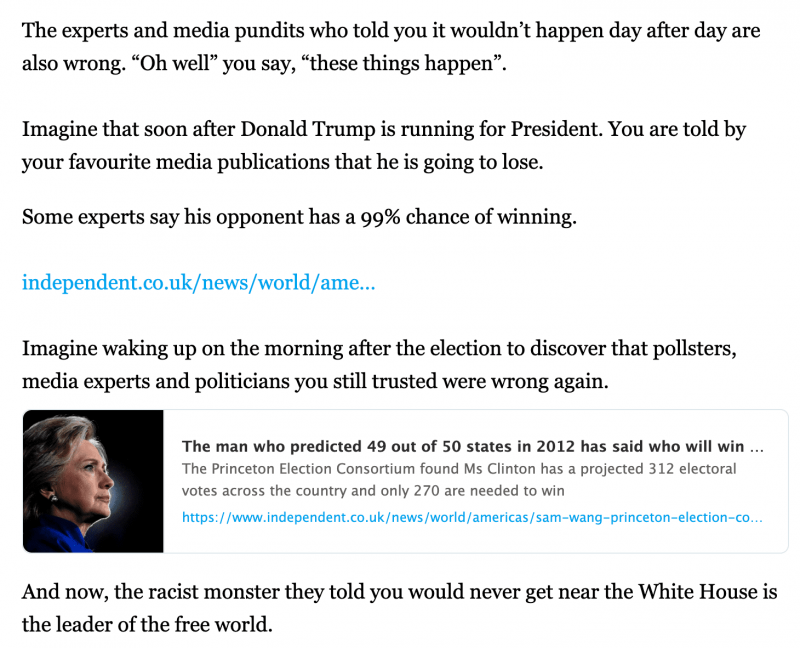

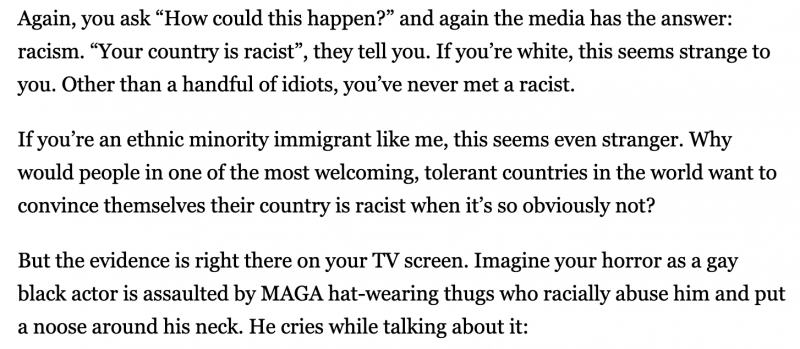
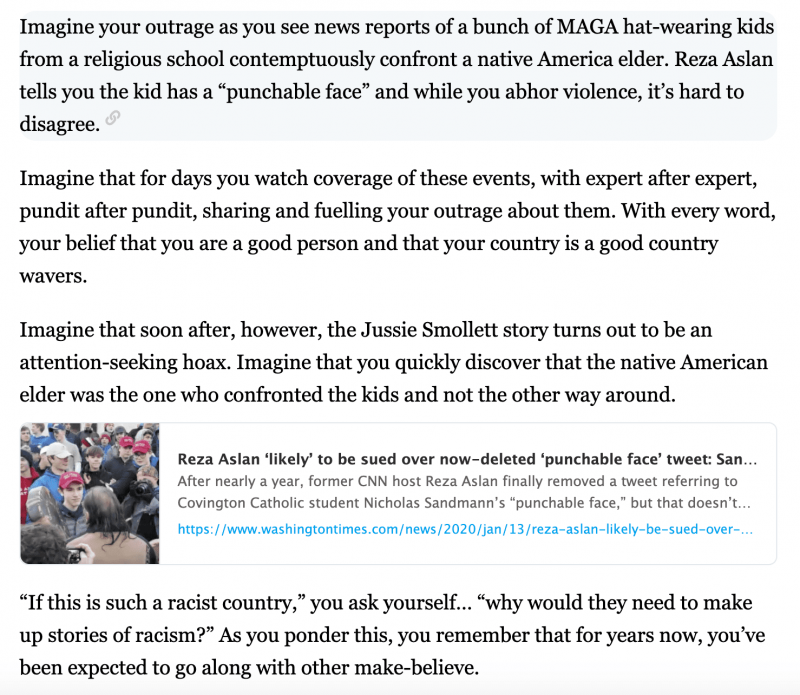
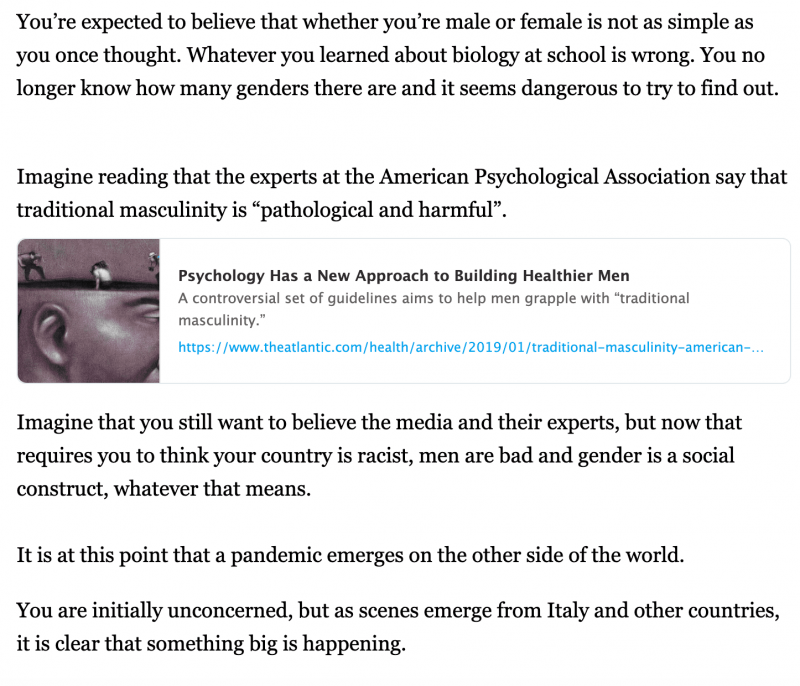

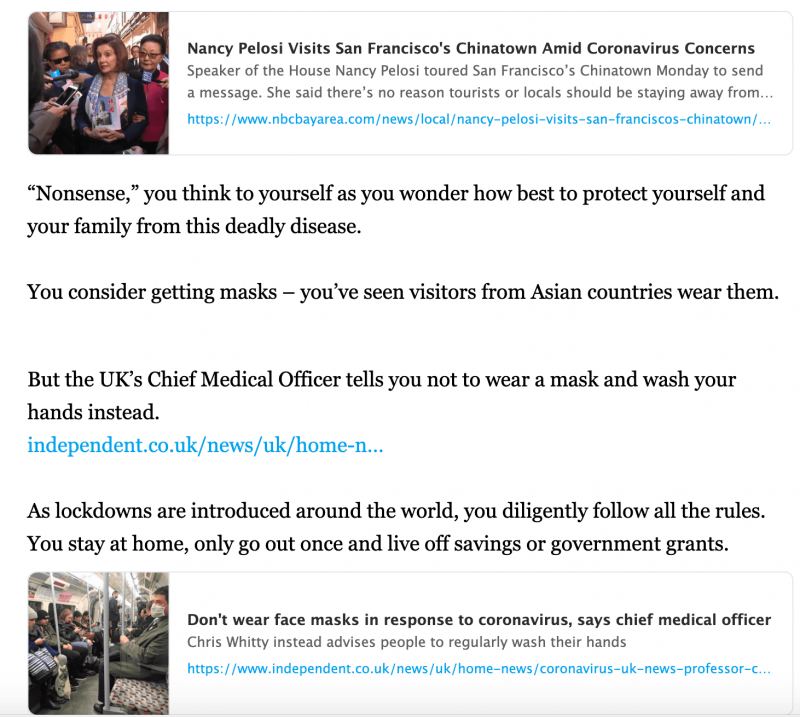
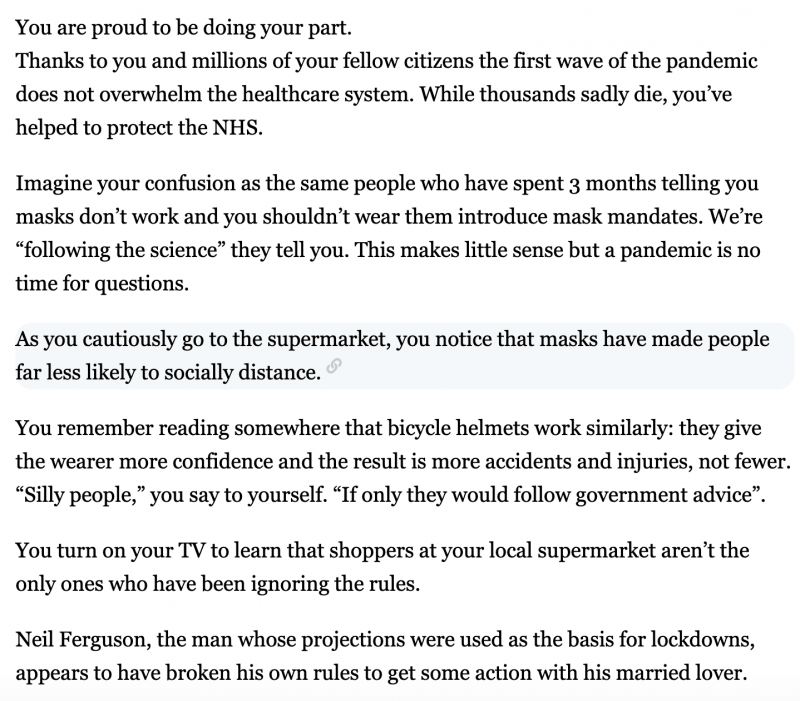
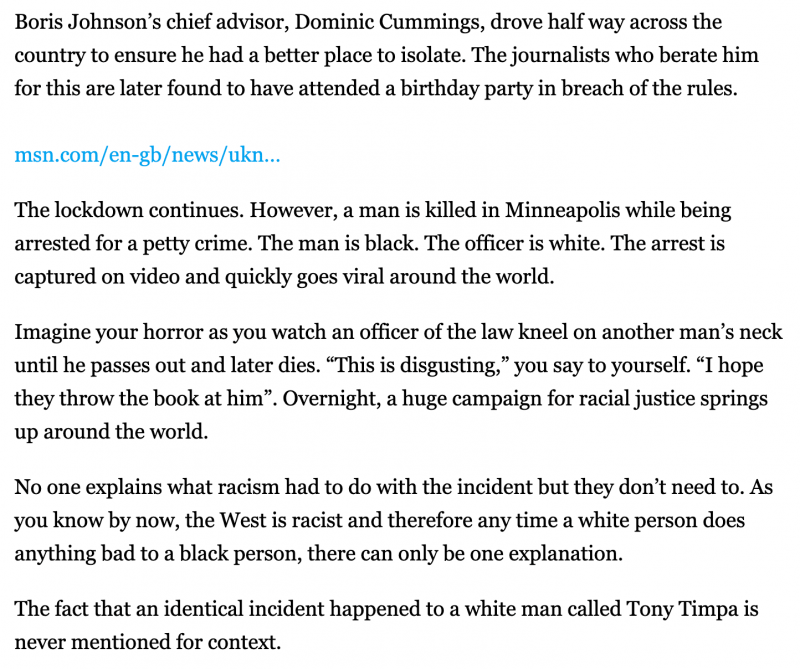

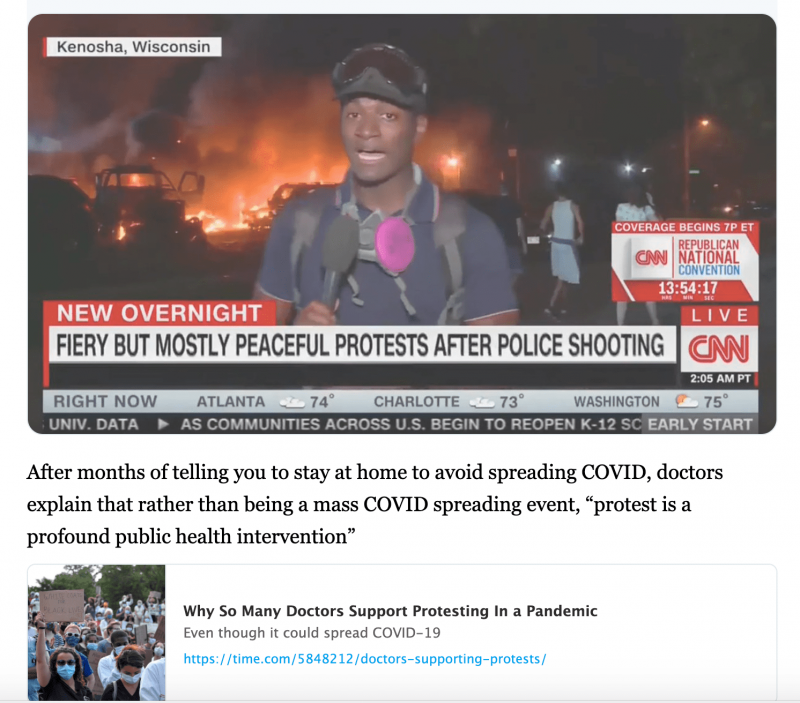
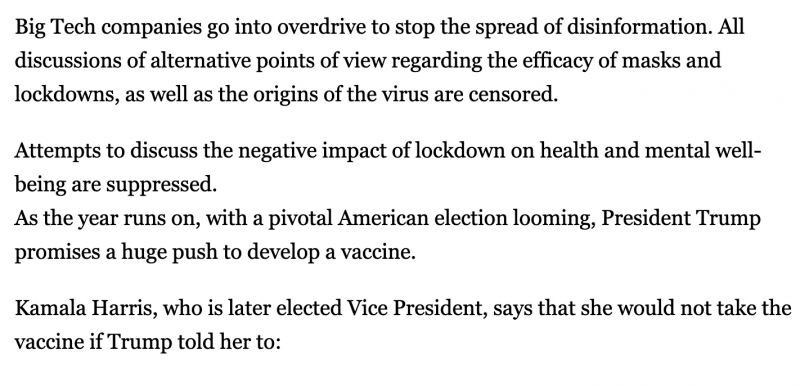
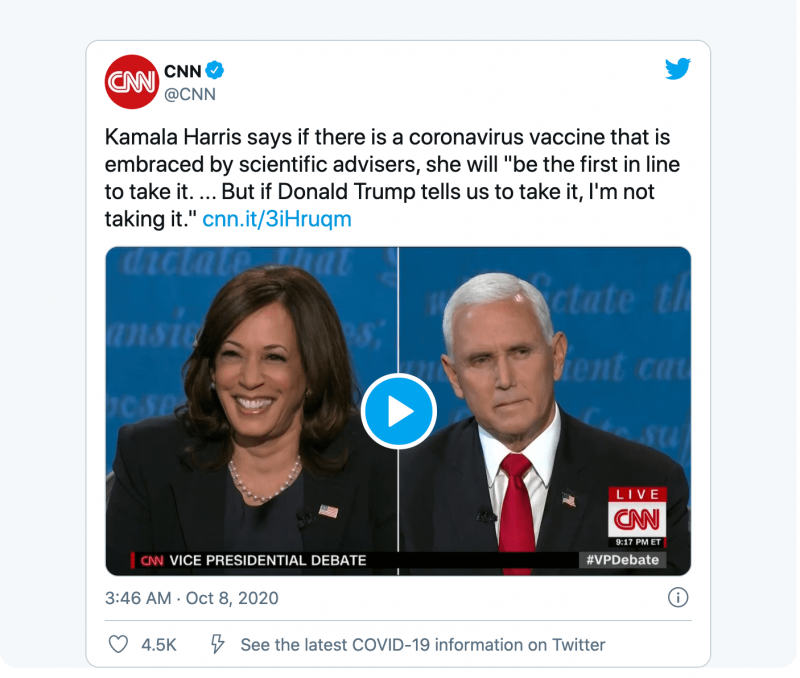



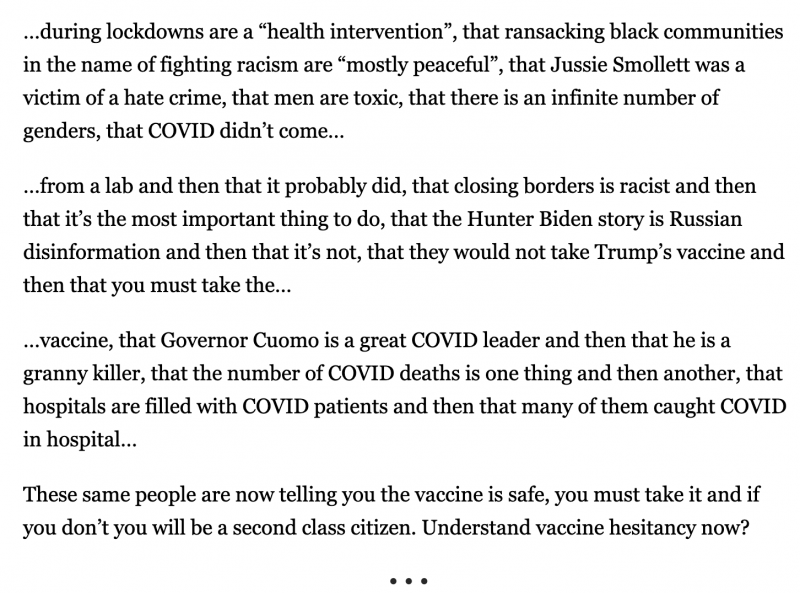
Yes, I do.
Yesterday I was at a social event in Budapest at which there were people from various European countries. There was a lot of talk about Covid restrictions in this or that country, and a lot of anxiety over who to believe about what. I realized how little I actually know about any of this.
Meanwhile, the medical profession continues to discredit itself via wokeness.Katie Herzog reports:
During a recent endocrinology course at a top medical school in the University of California system, a professor stopped mid-lecture to apologize for something he’d said at the beginning of class.
“I don’t want you to think that I am in any way trying to imply anything, and if you can summon some generosity to forgive me, I would really appreciate it,” the physician says in a recording provided by a student in the class (whom I’ll call Lauren). “Again, I’m very sorry for that. It was certainly not my intention to offend anyone. The worst thing that I can do as a human being is be offensive.”
His offense: using the term “pregnant women.”
“I said ‘when a woman is pregnant,’ which implies that only women can get pregnant and I most sincerely apologize to all of you.”
It wasn’t the first time Lauren had heard an instructor apologize for using language that, to most Americans, would seem utterly inoffensive. Words like “male” and “female.”
Why would medical school professors apologize for referring to a patient’s biological sex? Because, Lauren explains, in the context of her medical school “acknowledging biological sex can be considered transphobic.”
When sex is acknowledged by her instructors, it’s sometimes portrayed as a social construct, not a biological reality, she says. In a lecture on transgender health, an instructor declared: “Biological sex, sexual orientation, and gender are all constructs. These are all constructs that we have created.”
In other words, some of the country’s top medical students are being taught that humans are not, like other mammals, a species comprising two sexes. The notion of sex, they are learning, is just a man-made creation.
The idea that sex is a social construct may be interesting debate fodder in an anthropology class. But in medicine, the material reality of sex really matters, in part because the refusal to acknowledge sex can have devastating effects on patient outcomes.
In 2019, the New England Journal of Medicine reported the case of a 32-year-old transgender man who went to an ER complaining of abdominal pain. While the patient disclosed he was transgender, his medical records did not. He was simply a man. The triage nurse determined that the patient, who was obese, was in pain because he’d stopped taking a medication meant to relieve hypertension. This was no emergency, she decided. She was wrong: The patient was, in fact, pregnant and in labor. By the time hospital staff realized that, it was too late. The baby was dead. And the patient, despite his own shock at being pregnant, was shattered.
More:
Carole Hooven is the author of T: The Story of Testosterone, the Hormone that Dominates and Divides Us and a professor at Harvard who focuses on behavioral endocrinology. I discussed Lauren’s story with her and Hooven found it deeply troubling. “Today’s students will go on to hold professional positions that give them a great deal of power over others’ bodies and minds. These young people are our future doctors, educators, researchers, statisticians, psychologists. To ignore or downplay the reality of sex and sex-based differences is to perversely handicap our understanding and our ability to increase human health and thriving.”
A former dean of a leading medical school agrees: “I don’t know the extent to which the stories you relate are now widespread in medical education, but to the extent that they are — and I hear some of this is popping up at my own institution — they are a serious departure from the expectation that medical education and practice should be based on science and be free from imposition of ideology and ideology-based intimidation.”
He added: “How male and female members of our species develop, how they differ genetically, anatomically, physiologically, and with respect to diseases and their treatment are foundational to clinical medicine and research. Efforts to erase or diminish these foundations should be unacceptable to responsible professional leaders.”
You have to read the whole thing. It’s like something from a dystopian novel … but it is happening right now. If this doesn’t get stopped soon, medical students are going to have to leave America to be trained in actual medical science. You should ask your doctor if he or she believes that men can get pregnant. If your doctor says yes, better find another doctor, because that one is on his or her way to being a quack.
Wokeness is accelerating the auto-destruction of authority, but it didn’t start with wokeness. I’m old enough to remember how the US Government and the Republican Party wrecked its own authority with the Iraq and Afghanistan wars. I recall how Wall Street did the same for Big Business with the 2008 crash. The Democrats are destroying themselves now with their embrace of wokeness. In the eyes of many of the young, Evangelical leaders harmed their own authority by going all-in for Donald Trump. The authority of the US Catholic bishops is a shell of its former self after two decades of scandal, the most recent revelation of which was that the de facto CEO of the US Conference of Catholic Bishops was a serial user of the gay hook-up app Grindr.
By the way, Matthew Hennessey, writing in the Wall Street Journal, sticks up for the unfairly maligned reporting team at The Pillar, which broke the story. Hennessey writes, in part:
Is it news? Without a doubt. Catholicism is the largest religious denomination in the U.S. Its bishops conference is an umbrella organization that provides leadership to the more than 70 million American Catholics in nearly 150 territorial dioceses. In June the conference’s deliberations over whether to deny communion to Catholic politicians who are out of step with church teaching on abortion made headlines.
If the priest who leads the USCCB is living a life antithetical to church teaching on matters of human sexuality, it’s a story—especially if part of his job is to help craft and oversee the church’s response to the past decade’s sexual abuse and misconduct scandals. It’s no secret that a clerical culture of deception enabled those scandals—and children weren’t the only victims. Many good men, including priests and seminarians with bright futures, had their vocations destroyed by that culture.
He goes on to say that the Pillar team got the information legally, and in line with normative journalism practice. Hennessey doesn’t put it this way, but it’s fair to conclude from his writing that what ticked off most of the critics was the fact that it busted a gay priest, and gave weight to the suspicion many lay Catholics have that the priesthood is honeycombed with sexually active gay men who live dishonest lives exploiting the Church.
Do you trust the US military? I don’t, at least not its senior leadership, who have embraced wokeness, and have traded in fighting actual wars for fighting the culture war. Do you trust the media? I don’t, and I am the media! Something as simple as spending time in Hungary, and realizing that while Viktor Orban’s Budapest is not the Athens of Pericles, the reality here is very different from what we Americans and Western Europeans are told by our media. In America, you can scarcely find fair, balanced, accurate coverage of issues involving race, sexuality, or religion. Do you trust academia? Do I even have to ask?
And there’s this:

Where is all this going? From Live Not By Lies:
Totalitarian movements, said [Hannah] Arendt, are “mass organizations of atomized, isolated individuals.” She continues:
What prepares men for totalitarian domination in the non-totalitarian world, is the fact that loneliness, once a borderline experience usually suffered in certain marginal social conditions like old age, has become an everyday experience of the ever-growing masses of our century.
The political theorist wrote those words in the 1950s, a period we look back on as a golden age of community cohesion. Today, loneliness is widely recognized by scientists as a critical social and even medical problem. In the year 2000, Harvard political scientist Robert Putnam published Bowling Alone, an acclaimed study documenting the steep decline of civil society since midcentury and the resulting atomization of America.
Since Putnam’s book, we have experienced the rise of social media networks offering a facsimile of “connection.” Yet we grow ever lonelier and more isolated. It is no coincidence that millennials and members of Generation Z register much higher rates of loneliness than older Americans, as well as significantly greater support for socialism. It’s as if they aspire to a politics that can replace the community they wish they had.
Sooner or later, loneliness and isolation are bound to have political effects. The masses supporting totalitarian movements, says Arendt, grew “out of the fragments of a highly atomized society whose competitive structure and concomitant loneliness of the individual had been held in check only through membership in a class.”
Civic trust is another bond that holds society together. Arendt writes that the Soviet government, in an effort to monopolize control, caused the Soviet people to turn on one another. In the United States, we have seen nothing like the state aggressively dismantling civil society—but it’s happening all the same.
In Bowling Alone, Putnam documented the unraveling of civic bonds since the 1950s. Americans attend fewer club meetings, have fewer dinner parties, eat dinner together as a family less, and are much less connected to their neighbors. They are disconnected from political parties and more skeptical of institutions. They spend much more time alone watching television or cocooning on the internet. The result is that ordinary people feel more anxious, isolated, and vulnerable.
A polity filled with alienated individuals who share little sense of community and purpose are prime targets for totalitarian ideologies and leaders who promise solidarity and meaning.
In hopeful news, I spent some time late Sunday afternoon with people who are doing something about it. That will be the subject of my next post.